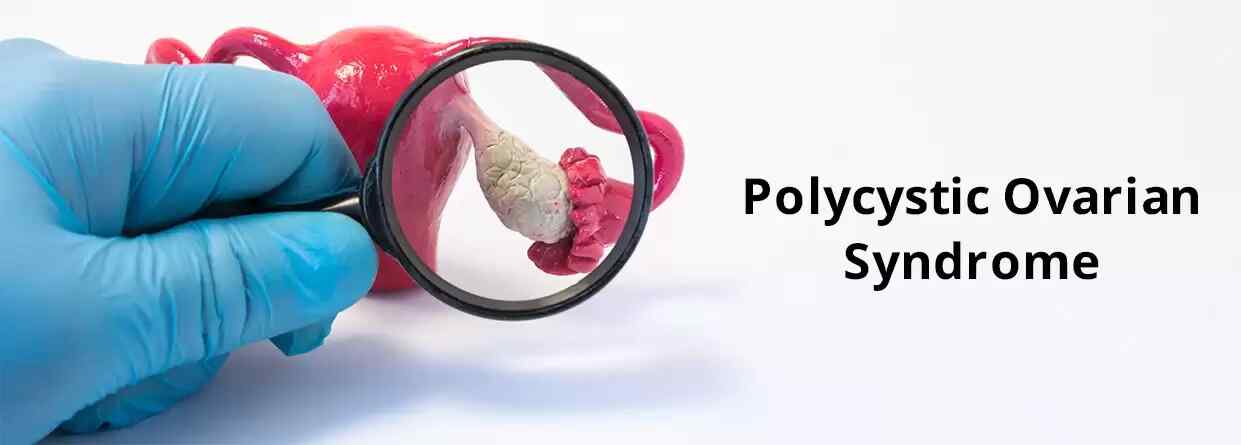Polycystic ovary syndrome (PCOS) is a common hormonal disorder affecting many women worldwide.
While it can be a complex condition, understanding its basics can help individuals navigate its challenges.

What is PCOS?
PCOS stands for Polycystic Ovary Syndrome.
It’s a medical condition that affects the hormonal balance in a woman’s body, primarily involving the ovaries.
Women with PCOS typically have higher levels of androgens, which are male hormones, than what is considered normal.
Some Common Symptoms
PCOS can manifest in various ways, and symptoms may vary from person to person. Some common signs and symptoms include:
- Irregular Menstrual Cycles: Women with PCOS often experience irregular periods or may even skip them altogether.
- Ovulatory Issues: It can disrupt the ovulation process, making it challenging to conceive for some women.
- Excess Hair Growth: Increased androgen levels may lead to unwanted hair growth on the face, chest, or back, a condition called hirsutism.
- Acne and oily skin: hormonal imbalances can cause acne breakouts and excessively oily skin.
Potential Health Risks
PCOS is not just a fertility issue; it can also have long-term health implications. Women with PCOS are at a higher risk of developing the following:
- Type 2 Diabetes: Insulin resistance is common in PCOS, increasing the risk of diabetes.
- Cardiovascular Problems: PCOS is associated with high blood pressure and elevated cholesterol levels, increasing the risk of heart disease.
- Endometrial Cancer: Irregular menstrual cycles can lead to abnormal uterine bleeding, potentially increasing the risk of endometrial cancer.
Diagnosis And Treatment
If you suspect you have PCOS, it’s essential to consult a healthcare professional.
A diagnosis typically involves a physical examination, a medical history review, and blood tests to measure hormone levels.
Imaging tests, such as ultrasounds, can help detect cysts on the ovaries.
Treatment for this condition depends on the individual’s specific symptoms and goals but may include:
- Lifestyle Modifications: Healthy eating and regular exercise can help manage weight and improve insulin resistance.
- Medications: Doctors may prescribe medications to regulate menstrual cycles, reduce hair growth, or improve insulin sensitivity.
- Fertility Treatments: For those trying to conceive, fertility medications and procedures like in vitro fertilisation (IVF) may be recommended.
- Management of Associated Conditions: Managing conditions like diabetes or heart disease may require additional medications and lifestyle changes.
Support And Resources
Living with this disorder can be challenging, but you’re not alone. Many resources and support groups are available online and in your local community to help you navigate the condition.
Connecting with others who share similar experiences can be invaluable.
Here’s another great read for you: 3 Foods To Avoid If You Have Diabetes
In conclusion, PCOS is a complex hormonal disorder that affects many women. Understanding its symptoms, potential health risks, diagnosis, and treatment options is essential for managing the condition effectively.
If you suspect you have PCOS, consult with a healthcare professional who can provide personalised guidance and support.
Remember that with the right care and lifestyle adjustments, many women with PCOS lead healthy, fulfilling lives.
